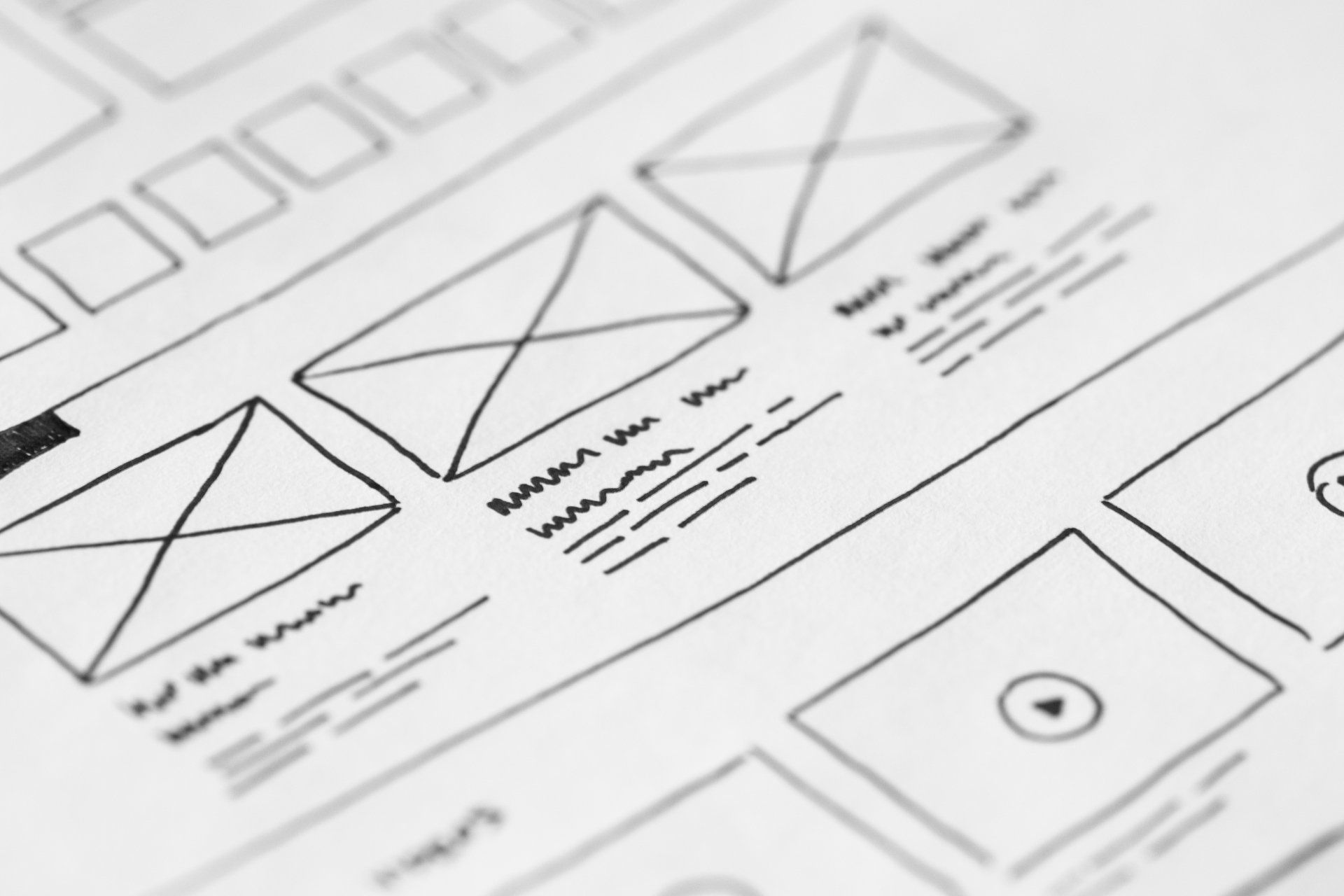The Art of Website Design: Why It's Best Left to the Professionals

A business's website is often the first impression a potential customer will have of their brand. With so many websites out there, it's essential to stand out from the crowd. An amateur website design may save a business money in the short term, but in the long run, it can do more harm than good. This is where professional website designers come in - they understand the importance of a well-designed website and have the skills to create one. In this article, we'll explore why it's best to leave website design to the professionals, looking at both the technical and creative aspects of the process.
Understanding the Importance of Professional Website Design
In today's digital age, a business's website is often the first impression a potential customer will have of their brand. With so many websites out there, standing out from the crowd is essential. An amateur website design may save business money in the short term, but it can do more harm than good in the long run. This is where professional website designers come in - they understand the importance of a well-designed website and have the skills to create one. In this article, we'll explore why it's best to leave website design to professionals, looking at both the technical and creative aspects of the process.
First Impressions Matter
When a potential customer lands on a website, they form an almost instantaneous opinion about the brand based on its design. It only takes a few seconds for a visitor to decide whether they will stay on a website or leave it. A professional website design ensures a positive first impression, one that makes a visitor more likely to stay on the site, engage with the brand, and eventually make a purchase.
Think of it this way: if a physical storefront is messy, disorganized, and unappealing, customers are less likely to walk in and explore. The same principle applies to a website. A professional design can make all the difference in attracting and retaining customers.
Consistency in Branding
Professional website designers understand the importance of consistency in branding. Every aspect of a website, including its design, should align with the brand's values and messaging. This consistency not only reinforces the brand identity but also instills a sense of trust in the visitor. When the design is consistent with the brand, visitors know what to expect from the business, and are more likely to become loyal customers.
For example, a website for a luxury brand should have a sleek and sophisticated design that reflects the brand's high-end image. On the other hand, a website for a family-friendly restaurant should have a warm and inviting design that appeals to families with children. A professional website designer can create a design that aligns with the brand's values and resonates with its target audience.
Optimized User Experience
A professional website design doesn't just look great - it's also optimized to provide the best possible user experience. A well-designed website is easy to navigate, with an intuitive layout and clear calls to action. This enhances the user's experience, leading to increased engagement and conversion rates.
For instance, a website for an e-commerce store should have a clear and organized product catalog, easy-to-use shopping cart, and secure checkout process. A website for a service-based business should have a clear and concise explanation of the services offered, along with a simple way to schedule appointments or request quotes. A professional website designer can optimize the user experience to meet the specific needs of the business and its customers.
In conclusion, a professional website design is essential for any business that wants to succeed in today's digital landscape. It can help create a positive first impression, reinforce the brand identity, and optimize the user experience. By investing in a professional website design, businesses can attract and retain more customers, ultimately leading to increased revenue and growth.
The Technical Aspects of Website Design
Website design has come a long way since the early days of the internet. In today's digital age, a website is often the first point of contact between a business and its potential customers. Therefore, it is crucial to have a website that is both aesthetically pleasing and technically sound. In this article, we will delve into some of the technical aspects of website design that are essential for a successful online presence.
Responsive Design and Mobile Optimization
With more and more people accessing the internet on their mobile devices, it is crucial for websites to be optimized for mobile use. A responsive website design ensures that the website adapts to any screen size, providing a seamless user experience across all devices. This means that visitors can access the site from their smartphones, tablets, or desktop computers without losing any functionality or aesthetics.
Mobile optimization is not just about making the website look good on a smaller screen. It also involves optimizing the website's content and functionality for mobile use. For example, a mobile-optimized website may have larger buttons and font sizes to make it easier for users to navigate on a smaller screen. Additionally, mobile optimization may involve minimizing the use of large images or videos that can slow down page load times on mobile devices.
Search Engine Optimization (SEO)
Search engine optimization (SEO) is the process of optimizing a website's design and content to improve its visibility and ranking on search engine results pages (SERPs). A website that is not found by search engines is unlikely to be found by potential customers. Therefore, it is essential to have a website that is optimized for search engines.
Professional website designers understand the importance of SEO and work to optimize a site's design and content to improve its search engine ranking. This involves using keywords and phrases that are relevant to the business and its target audience. Additionally, a website's design and structure can also impact its search engine ranking. For example, a website with a clear hierarchy of pages and easy-to-use navigation is more likely to rank higher than a website with a confusing layout.
Site Speed and Performance
Site speed and performance are critical factors that can impact a website's user experience and search engine ranking. No one wants to visit a website that takes forever to load or repeatedly crashes. Therefore, it is essential to have a website that is optimized for fast, reliable performance.
A professional website designer ensures that a site's design and functionality are optimized for fast, reliable performance. This includes minimizing the use of large images or videos that can slow down page load times. Additionally, a website's hosting provider can also impact its performance. Therefore, it is essential to choose a reliable hosting provider that can handle the website's traffic and provide fast load times.
In conclusion, a successful website requires more than just an attractive design. It must also be optimized for mobile use, search engine visibility, and fast, reliable performance. By working with a professional website designer, businesses can ensure that their online presence is both aesthetically pleasing and technically sound.
The Creative Process Behind Professional Website Design
Designing a website is more than just creating a visually appealing layout. Professional website designers understand the importance of creating a user-friendly experience that aligns with a brand's identity and messaging. Here are some additional details about the creative process behind professional website design:
Visual Hierarchy and Layout
Visual hierarchy is the arrangement of elements on a page in a way that guides the user's eye through the content. Professional website designers use this technique to ensure the user can quickly and easily find the most important information. They achieve this by using different font sizes, colors, and placement of elements to create a clear and organized layout. This, in turn, improves the user experience and increases the likelihood of the user staying on the site for longer.
Color Theory and Typography
Colors and typography are powerful tools that can communicate a brand's values and messaging effectively. Professional website designers use color theory to choose colors that align with a brand's identity and create a visually appealing design. They also carefully select fonts that are easy to read and work well with the overall design. The combination of colors and typography can create a memorable and impactful brand image.
Custom Graphics and Multimedia Integration
Custom graphics, photographs, and multimedia elements are an essential part of modern website design. Professional website designers use these elements to enhance the user experience and bring a brand's identity to life. Custom graphics can create a unique and memorable brand image, while photographs can add a personal touch and create an emotional connection with the user. Multimedia elements such as videos and animations can make the site more engaging and interactive, increasing the user's time on the site.
Overall, professional website design is a creative process that requires a deep understanding of a brand's identity and values. By using visual hierarchy, color theory, typography, and custom graphics and multimedia, designers can create a user-friendly and visually appealing website that effectively communicates a brand's message.
The Benefits of Hiring a Professional Web Designer
Saving Time and Resources
Designing a website can be a time-consuming process. A professional website designer has the skills and experience to complete the project efficiently. This saves a business time and resources that can be put toward other important tasks.
Access to Expertise and Experience
Professional website designers have years of experience and a wealth of knowledge about design and development. They stay up-to-date with the latest trends and techniques and can offer advice and guidance on what will work best for a particular business.
Ongoing Support and Maintenance
Even after a website is launched, there may be issues that arise or updates that need to be made. A professional website designer provides ongoing support and maintenance to ensure the website runs smoothly and remains up-to-date.
Conclusion
Website design is a crucial aspect of any business's online presence. A well-designed website ensures a positive first impression, enhances user experience, reinforces branding, and generates revenue. While it may be tempting to save money and design a website in-house, the benefits of hiring a professional website designer are clear. They have the skills and expertise needed to create a website that stands out from the crowd and delivers results.
Looking for a web design agency in Chicago that caters to small businesses, solopreneurs, start-ups, and churches?
We offer affordable web design and digital services tailored to meet your needs and elevate your small business.



